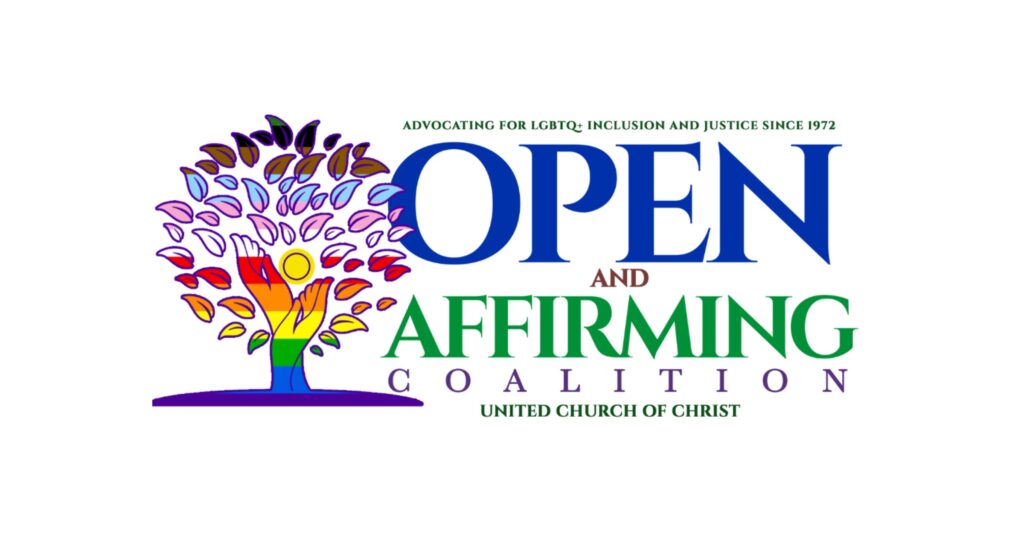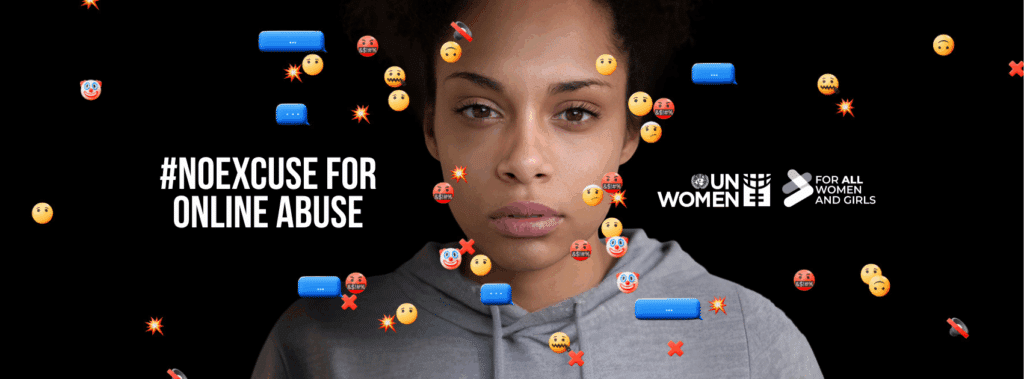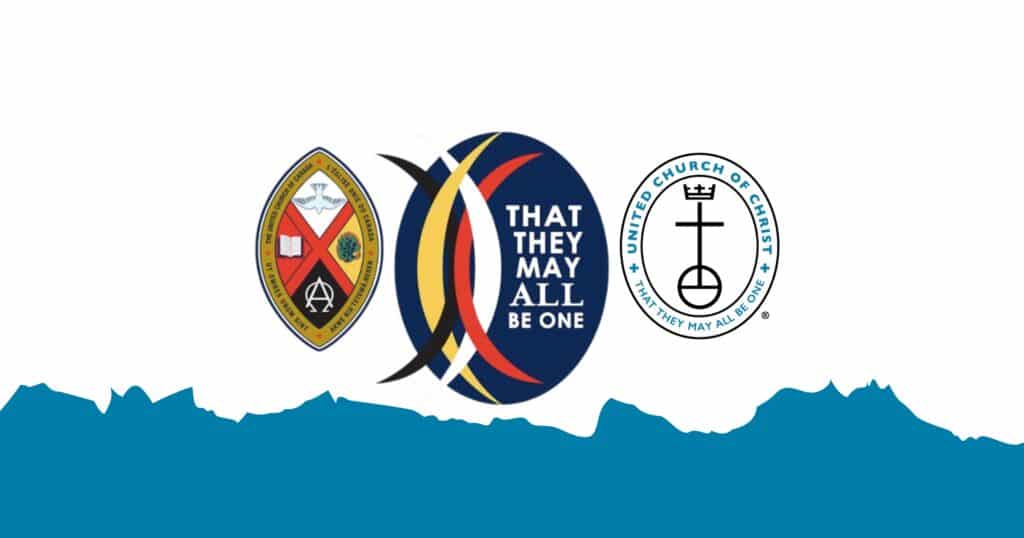New look, new dreams for ONA Coalition: An interview with Rev. Katrina Roseboro-Marsh
The Open and Affirming Coalition of the United Church of Christ recently got a refreshed look.
The coalition’s brand new logo and updated website accompany a commitment to continually work toward expanding the amount of ONA churches within the UCC, while also developing more education and support around what it means to be ONA in an ongoing way and engage with the intersectionality of people’s identities.
The Rev. Katrina Roseboro-Marsh has served as the coalition’s executive director for just over a year, and in the interview below, she shares reflections on developments during that time and some of the future dreams still in the works. The interview has been edited for clarity and length.
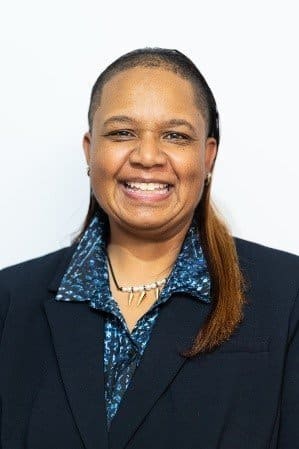
Roseboro-March uses the acronym LGBTQIAN2S+ to describe the people she serves. She began using this acronym soon after beginning her role at the ONA Coalition following conversations with individuals who felt left out with the LGBTQ+ acronym. The “I” is for intersex, the “A” is for asexual/agender, the “N” is for non-binary or (gender) non-conforming, and the “2S” is for two-spirit.
“I wanted something that could intentionally broaden honoring the even more marginalized within the already existing marginalization of the community,” she said. “I wanted to intentionally amplify their importance, with the hope of also encouraging them to yet press to amplify their voices.”
What are the ONA Coalition’s current priorities?
KRM: We yet strive to have a 100% ONA certification within the UCC. We’re at around 36-37%, so this foundational goal will be a priority until 100% is reached.
Overlapping with this goal is to offer the understanding that, yes, being ONA is rooted in an extended declaration of LGBTQIAN2S+ individuals, but it is also with the active assertions of a person’s intersections that encompass all expressions of human diversity. Whether it be race, class, ethnicity, ability, age, national origin, sexual orientation, economic status, gender expression/identity, etc., accepting and affirming all parts of a person is key.
For the ONA Coalition, it is important that there is understanding — that there is no single, boxed-in representation that makes an individual unique, but multiple realities that are present when any one person occupies a space. Therefore, being ONA means you recognize a person’s realities and yet honor the whole individual, giving the individual respect, a space of safety, and upholding their dignity as a human being.
Holding these principles, our prioritized goal will always be 100% certification. This will mean that the entity has gone through our process where questions can be answered and discussions can be had, so that we can reason together why it is important to truly honor one’s rightful birthright of humanness in all the beautiful ways God allows it to show through a person’s sheer existence.
Furthermore, with this, our new goal is to reengage our ONA churches that have been certified for five years or more. We know how much change happens in one year of time, and for some churches it has been 10, 20, even 30 years since they were certified. This reengagement will include an updated certification, or recertification, which will include a trans and non-binary curriculum along with the ways of embracing living out intersectional realities.
Tell us about the refreshed logo and website, and how they represent the ONA Coalition’s priorities.
KRM: The ONA Coalition Leadership Team felt that the message of the previous logo was getting lost to the younger generations. Plus, the former website was not as user-friendly as needed.
I felt it was best for us to try to create a logo that spoke across generations and spoke to intersections. The one we chose was after several drafts and iterations, because trying to uphold all of those things in an image is challenging. We wanted an image that translated vibrancy and life while encapsulating the almost 52-year rootedness and continual growth of the organization.
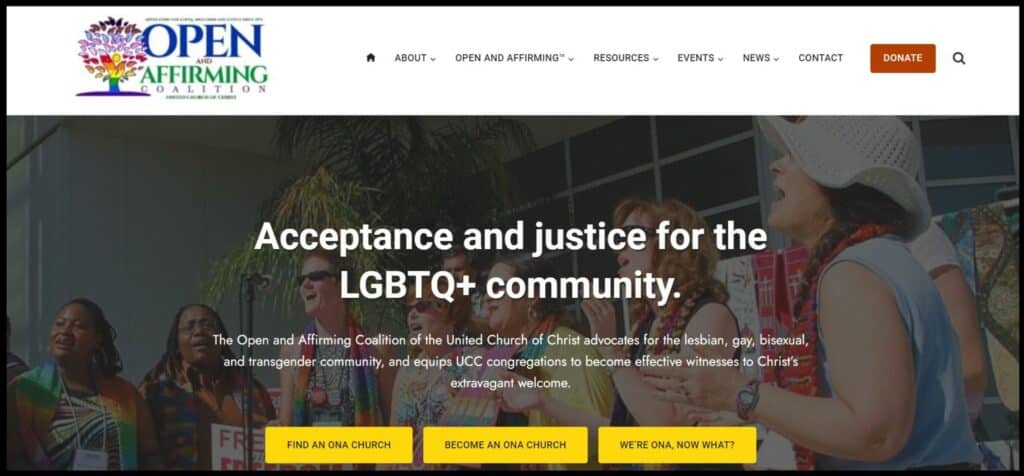
The leaves overlapping in color speak to the intersections we each bring in our sheer presence. The specific colors of the tree and hands dictate the known Pride flag colors, but also how it takes the presence of each of us in our uniqueness to have a whole space for safety and affirmation for all.
What makes intersectionality an important topic right now for faith communities, especially in the UCC?
KRM: Intersectionality is so pertinent because it intentionally affirms embracing the interconnected realities of social identities and oppression. It is key with proclaimers of justice work that there is a deeply rooted understanding of how various forms of discrimination indeed intersect individual’s lives — and communities as a whole — and are impactful of their daily experiences of the world on both micro and macro levels.
This must be held to appropriately meet people where they are for spiritual and emotional healing and empowerment. When the understanding is grasped, it helps us with justice in action of addressing issues of systemic inequality more effectively, whether it is within our own backyard or the backyard of those we are connected and covenanted with.
Acknowledging and upholding of intersectionality allows for a holistic understanding of our commonalities of human experiences and challenges, as well as our common goals of aligning with values of compassion, equity, and solidarity that’s upheld by our in-common faith.
What can ONA churches do to live into their covenant and commitment to be ONA, especially with regards to the rising legal attacks on LGBTQIA+ people (with transgender rights, drag culture, and gender affirming care being targeted in particular)?
The number one way to show commitment and to live out a covenant is to have public evidence. Public affirmation of LGBTQIAN2S+ individuals entails actively and deliberately endorsing and embracing their well-being, rights, and identities.
Advocate for policies and legislation that safeguard the rights of LGBTQIAN2S+ individuals and advance equality, including but not limited to transgender rights, anti-discrimination measures, and marriage equality. Advocate against homophobia and transphobia: confront prejudiced perspectives and terminology head-on when they are encountered. Defy prejudice and establish a secure environment for those who identify as LGBTQIAN2S+. Provide them with opportunities to function as laborers and administrators for special occasions or events, as well as lay or ordained members of the congregation. I could go on.
Alongside of these things, connect. We are in the process of creating a way for ONA churches to connect with each other so they can have access to the initiatives other congregations are doing. This will allow for a communal way to educate, encourage, and take action. It helps strengthen the impact of doing advocacy work while also not burning the same people out to get it done, whether it is making calls, being a part of a march, or even just gathering to pray.
The second part of this for me is to financially support the ONA Coalition. The coalition is a separate non-profit that receives no funding from Our Church’s Wider Mission, though we are in covenant with the UCC. As an independent organization, we depend on support from churches and individuals and have for our almost 52-year history. The generous donations we receive help us to offer support, webinars, and resources for the covenant process and beyond, as well as maintain a small, paid staff.
We would love to be able to offer more than we currently do — and I’m thrilled to say we already offer some cool things — but we’d love to expand our programming and even grow our team.
I’ve submitted my vision of having a virtual support space for those clergy who identify as LGBTQIAN2S+, those who are BIPOC clergy in predominantly white congregations, and those who are trans serving within the denomination. But this takes money for qualified facilitators. I’d love to have a staff person that helped me manifest my dream offerings for our LGBTQIAN2S+ aging siblings, and our youth and young adults. But, again, that takes money.
These are just a couple of examples. The funding needed is rooted in offering a dependable safe space for LGBTQIAN2S+ individuals, which also ties into our process for churches to become certified. We have volunteer consultants who guide congregations through their process, but I’d love to be able to expand this with unified training for them, as well as the ability to offer a small stipend for their time and for some gas and lodging when in-person conversations are the best for the congregation.
Ultimately, it is our goal to be able to be a present and consistent place of safety first, affirmation, solace, and empowerment for this community.
What events and resources are available or coming soon?
We will be having our first in-person ONA National Gathering since 2019, on September 18-22, 2024, in Cincinnati, Ohio. We will offer several workshops, but I’m hopeful to offer a workshop and space that is specifically for parents of LGBTQIAN2S+ identified persons.
We have monthly webinars planned, which we have outlined for the first six months of the year, and the remainder of the year will launch soon. We also have a monthly podcast called The Intersection that features individuals from the LGBTQIAN2S+ community. We have launched an open call for general volunteers and Leadership Team members that want to be a part of our work.
In the near future, we will also be opening a call for those interested in becoming consultants to assist congregations with being certified. Soon, we are launching our own store where we have partnered with LGBTQIAN2S+ artisans and allies to offer ONA merchandise and beyond.
These are just some of the things, but to keep up with what’s happening, one can subscribe to our mailing list and monthly newsletter.
Content on ucc.org is copyrighted by the National Setting of the United Church of Christ and may be only shared according to the guidelines outlined here.
Related News
Who’s Next?
This week the Supreme Court agreed to oral arguments on the challenges to Presidential...
Read MoreGender and Sexuality Justice Ministries joins global movement to end violence against women, children
The Gender and Sexuality Justice Ministries (GSJM) of the United Church of Christ has joined...
Read MoreUCC and United Church of Canada celebrate a decade of ‘shared mission, mutual accountability, common hope in Christ’
Ten years ago, the United Church of Christ (UCC) and The United Church of Canada (UCCan)...
Read More